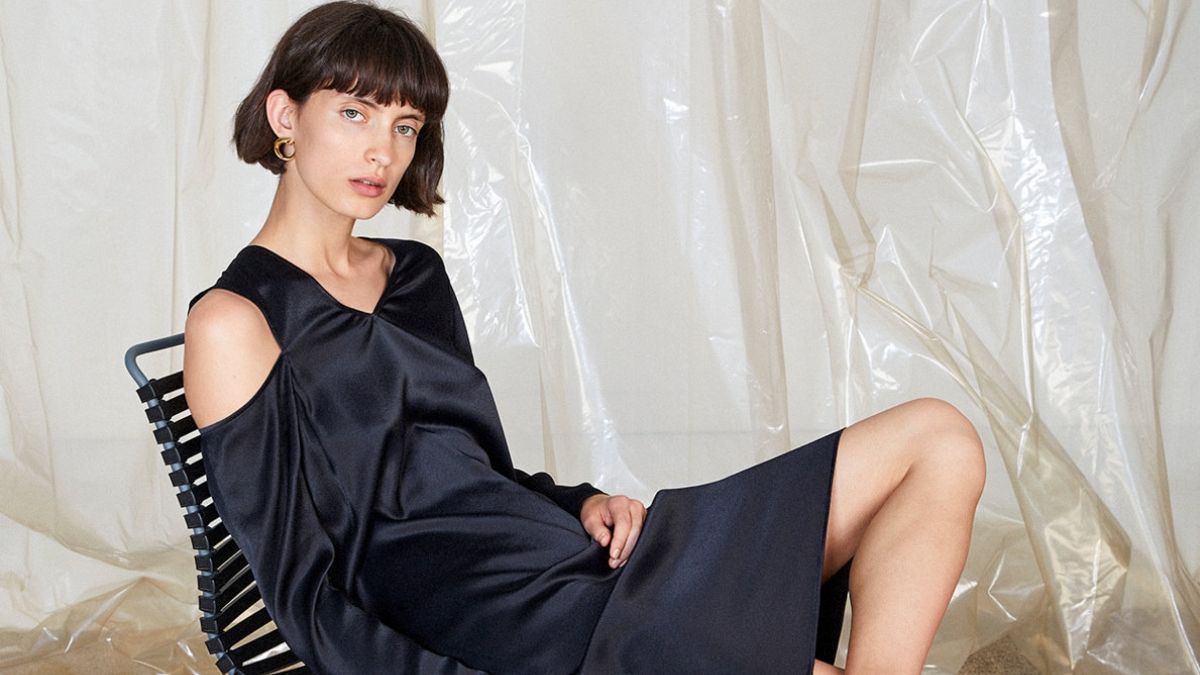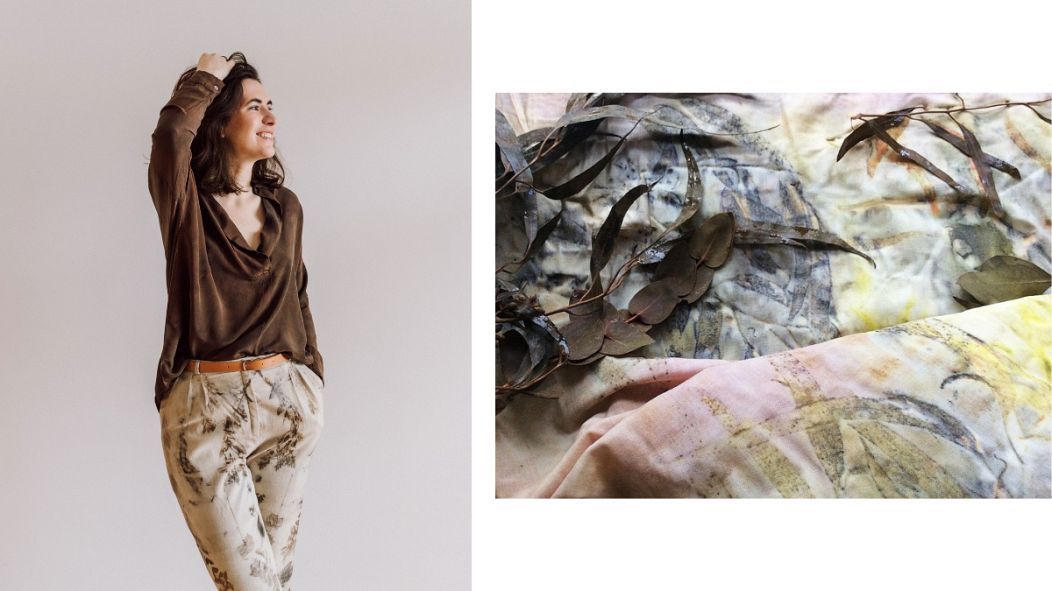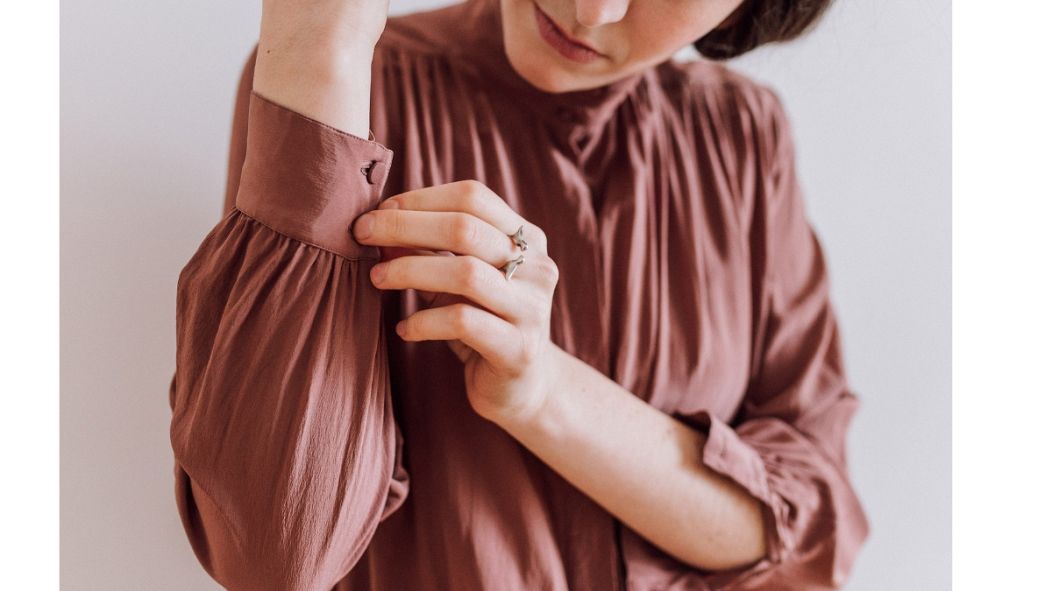These ethical brands are at the forefront of a new era for fashion in Hungary.
Hungary had a well-established textile industry during the communist era. It was completely centralized and the Hungarian Fashion Institute controlled everything. The Institute had its own textile designers, fashion designers and shoe designers who designed two collections per year (spring/summer and autumn/winter); the manufacturing industry then produced what the Institution designed. There was no competition. The textile and clothing factories also worked on commission for Western European companies - the industry was really blossoming.
After the fall of communism, the country opened up to major (fast) fashion brands that lured the Hungarian consumers with a wide range of choice and low prices. But there is a vibrant - and quickly growing - sustainable fashion scene that is putting Hungary on the map for ethical and eco-conscious shopping and these are just some of the brands leading the way.
Jewellery and home decor inspired by the forest
Plantethics is an ethical, conscious and sustainable jewellery and home decor brand that was founded by Budapest native Barbara Denes. She stumbled upon the term “plant ethics” while working in the executive committee of Trans Europe Halles, a network of cultural centers initiated by citizens and artists. “Plant ethics” examines how humans and plants are connected and how can help each other.
“Research on ‘plant ethics’ really impressed me and gave me the idea to start a brand through which I could communicate the message of how important it is to save nature and to motivate people to reconnect with it. I also want to raise attention about all the ecological impacts we are making,” Barbara explains.
Barbara and her husband David hike regularly in the Hungarian countryside near their home to collect fallen branches, twigs, little leaves and plants. These are the raw materials they use to create the necklaces, earrings and various home decor elements. A family from Kecskemét, a small town nearby, also helps with the collecting process and pruning works. Barbara’s friend Margareta then helps with the woodworks and Balazs lends his expertise in applying the Tiffany stained glass technique.
In addition to the ReWood, Forest, Terra, PlayPlants, Zuzmo, Earth and Essence lines, Barbara is about to launch the WanderWoman collection. “This is a new sustainable luxury line, with which we would like to reach a new target audience to deliver our message to them as well. This target audience lives a high life, travels a lot and usually pays minimal or no attention to their ecological impact. We would like to change this behavior through our ethically made, fair trade precious metal jewelry line and the message it brings. We hope to encourage everyone to take the next step to a slower life, wandering in nature as much as possible while taking care of Mother Earth,” Barbara says.
Locally-inspired fashion with a minimal ecological footprint
One of the first environmentally conscious brands in Hungary, Printa designs and creates clothing, souvenirs, home accessories and other fun knick knacks in limited editions using material supplied by local artists, as well as upcycled and organic material and handcrafted techniques. Printa was established in Budapest in 2009 as a concept store and gallery featuring works of local artists.
“I’ve been interested in visual creation and protecting the environment since childhood. After receiving my master’s degree from the Hungarian University of Fine Arts, I opened my first shop (Bolt) in 2006 as a precursor to Printa which was opened in 2009. I’m most interested in how to make a product that’s unique and beautiful but with the smallest ecological footprint possible,” says Zita Majoros, Printa’s founder.
Since its humble beginnings, Printa has been constantly changing and expanding the collection. Today the team markets their own designs almost exclusively while also promoting a zero waste and conscious lifestyle. The Pest collection, for example, draws inspiration from Budapest’s unofficial symbols and street art and combines them with eco-friendly materials and handcrafted techniques that offer a fresh alternative to mass manufactured and imported souvenirs that usually end up in the bottom of drawers.
Conscious fashion with a natural color palette
Botanika is an eco-conscious clothing and accessories brand designed and created by Sára Hajgató in Budapest. With a background in styling and fashion journalism, Sára started experimenting with organic colors and was mesmerized by the perfect harmony natural dyes yield. And thus was born her line of textile goods in 2012.
“Botanika stems from my deep-rooted quest for finding closeness with nature in an urban lifestyle and is fuelled by a desire to create eco-conscious products with respect to natural resources and fabrics, sustainability and ethical considerations during both design and production,” Sára Hajgató explains.
With Botanika, the designer embraces and revives the traditional artisan techniques of natural dyeing and fabric manipulation. Where possible, Sára supports local companies and sources fabrics and supplies only from small, locally-owned stores. The majority of the dyestuff used is sourced from Sára’s own dye garden and no harmful chemicals are used during the dye process. All leather featured in the accessories is also non-toxic vegetable-tanned leather waxed with organic beeswax and plant oils.
“For me, Botanika is a celebration of modern day alchemy, the alchemy of natural colors. Our effortless, thoughtful and chic Botanika pieces are created with personal care in harmony with nature,” she adds.
The collection includes ethereal cotton gauze and lustrous silk scarves, pastel canvas clutches and bags, cotton rope jewellery and pendants featuring semi-precious stones, as well as a collection of easy-to-wear garments. The latest concept collection “∞ Heirloom∞” is a range of curated vintage garments, rich silks, wools, linens and more, dyed and given a second chance in life with botanical dyes.
Fine materials, quality craftsmanship and strict yet feminine minimalism
Behind this luxury clothing and accessories brand (launched in 2011) is Budapest native Eszter Áron, who was born into a textile dynasty and generations of tailors. Áeron’s design is characterized by the unique combination of superb quality, innovative craftsmanship and effortless elegance.
Although sustainability is not the core positioning of the brand, Eszter makes sure that every collection focuses on reinventing traditional tailoring techniques while only using the finest materials such as a distinctive Japanese vegan suede that has become a signature fabric of Áeron.
“In our AW19 collection we have just introduced a new fabric - the faux leather - which is 100% vegan, so it is a milestone on the way towards becoming more and more sustainable. Apart from this, we have nearly all our production here in Hungary as it is important for us to employ Hungarian people in the countryside, where there are not many jobs. We also work with manufacturers who employ people with changed working abilities,” Eszter Áron describes.
These moves are not random. Eszter firmly believes that fast fashion is completely at odds with encouraging people to make sustainable fashion decisions because it is one of the most polluting industries and designers have an important role to play in changing this. But Eszter laments that at the moment, though demand is slowly rising for sustainable fashion in her home country, it is still a very small segment that can afford to buy from local designers because of the price point.
Budapest upcycling heroes
Sharolta is a young ethical fashion brand from Budapest founded by Sarolta Tripolszky in 2015 that uses society’s textile waste collected by eco-friendly urban communities as the main raw material for its collection. As a result, Sharolta’s bags and clothes production process demands 50-85% less energy than items made from new material.
“We combine our love for minimal style with strong motivation to save the Earth for our children. We believe that if people are provided with the choice of beautifully designed ethical fashion, they will go for it!” Sharolta says.
The process is simple: people drop off their old jeans in one of the collection boxes and a Hungarian seamstress will then turn them into a brand new bag or garment. Sharolta takes great pride in being able to provide local jobs. Customers are also encouraged to support orphan children in Africa by giving them an upcycled school bag.
Sustainable swimwear with a purpose
Undersea Bikini is an eco-friendly swimwear label catering to those who desire a comfortable product they can feel good about wearing out at the beach or by the pool. With the help of Econyl, every collection is made from 100% recycled fabric. The premium material is brought to the surface by volunteer divers recovering abandoned fishing nets and other nylon waste material from the bottom of the seas to bring them to life again through their high-quality swimwear.
The diversity of Undersea’s collection is designed to satisfy every kind of ocean lover out there. From surfing to taking a walk on the beach, Undersea has a bikini to fulfill a wide range of lifestyle needs. Additionally, the team behind Undersea seeks to inspire people to truly honor the oceans and the seas.
Undersea partners with Sea Turtle Inc., an organization that rehabilitates trapped or injured sea turtles before returning them to their natural habitat. A part of the proceeds from certain swimwear lines go towards helping Sea Turtle Inc. carry out their important work.





